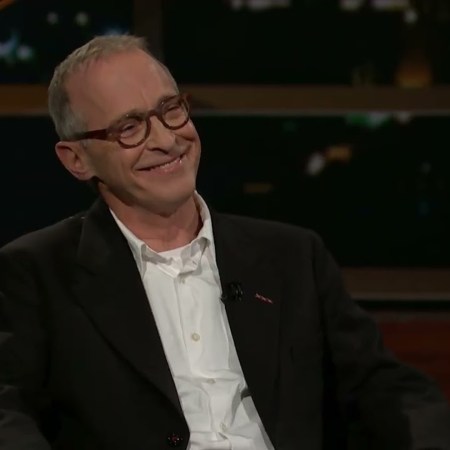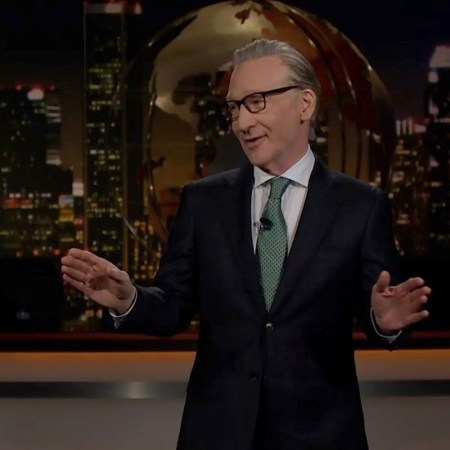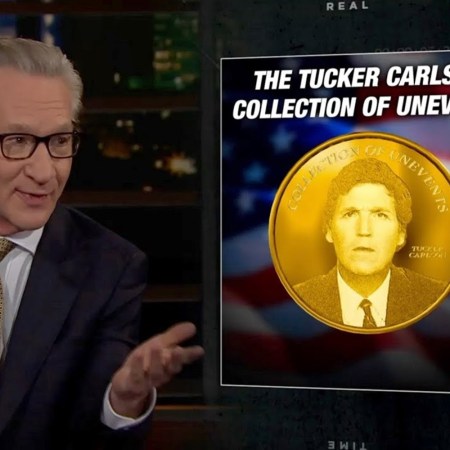“They’re all getting ‘NO MALARKEY’ tattoos. It’s amazing.” That’s Bill Maher’s observation on younger voters embracing the Biden administration as of late. Maher’s opening monologue on the latest Rel Time involved a runthrough of the week’s news — the Biden administration’s moves on student loan, the aftermath of the FBI’s raid on Mar-a-Lago and a Missouri school district that brought back spanking. He also returned to the controversy over the Prime Minister of Finland dancing. Maher was baffled that it was a scandal at all. “What is this, Footloose?” he asked.
Up first, and appearing remotely, was filmmaker and debut novelist John Waters. Maher asked him about being recognized in public, and Waters commented that he’s noticed that he’s recognized for different things in different places. “You’re right — I am getting so respectable you wanna puke,” Waters added. The overall tone was one part self-effacing, one part victory lap.
The conversation initially featured a retrospective turn, with Waters discussing an upcoming museum exhibit about his work and the new Criterion Collection edition of his groundbreaking film Pink Flamingos. Waters’s digressions grew increasingly surreal, venturing into fake testicles for neutered dogs and wondering about the medical applications of his honorary doctorate. Mostly, it was an opportunity for Waters to hold forth on a host of subjects, including the Biden presidency, monkeypox and the legacy of Divine.
Maher was joined by Senator (and author) Amy Klobuchar and filmmaker Rob Reiner for the panel, which began with a discussion of the Biden administration’s recent legislative moves. Maher inveighed for a bit about ways in which large pharmaceutical companies have abused their power — including lobbying against reform legislation, as well as their role in the opioid epidemic.
Not surprisingly, this wound up with Maher expressing skepticism over various COVID-19-related measures. Klobuchar opted to address the earlier parts of his question, focusing on the importance of campaign finance reform and the harm the Citizens United ruling has done. “That was a very good filibuster,” Maher replied.
Real Time’s panel discussions often sink or swim on the debates that emerge from the combination of personalities on stage. Here, that dynamic largely found both Reiner and Klobuchar critiquing some of Maher’s more provocative stances — his oft-stated position that college is unnecessary for most people. Maher also quizzes Klobuchar on whether or not she planned to seek the Democratic Party’s nomination for President in the coming years. Klobuchar demurred from answering, stating that she was focused on the upcoming midterm elections.
In the second half, the topic shifted to Boxgate, and Klobuchar shared some of her own experience with classified material. “When we have these classified documents that we look at, I can’t even wear a Fitbit!” she said.
Maher also clashed with his guests over whether or not there was an organized media effort to suppress news stories unflattering to the Biden campaign before the 2020 election. Maher cited comments made by Sam Harris advancing this theory; Reiner and Klobuchar were more skeptical.
The discussion continued on Overtime, where Klobuchar spoke about the importance of local media — and of the legislation she has proposed to protect local newspaper and television stations. Maher and Reiner debated what Archie Bunker would have made of the Trump presidency. “Norman Lear just turned 100, so let’s ask him what he thinks,” Reiner said. Klobuchar also returned to the controversy surrounding Finnish Prime Minister Sanna Marin, arguing convincingly that the criticism Marin received represented a sexist double standard.
New Rules began with Maher addressing subjects from police brutality to wedding gowns before arriving on its central argument, which related to the onstage stabbing of Salman Rushdie. Maher spoke of his frustration of being accused of Islamophobia, which led him to expound on his frustration with straw man arguments. Then Maher brought an actual straw man on stage, and occasionally gestured at it.
“In a free country, we get to opine about religion or anything else without the threat of violence,” Maher said. And in the final part of the segment, Maher’s choice of imagery extended his argument to the reactionary fundamentalism of a wide variety of religions. Religion is a subject Maher has tackled before; the same is true of free speech. It seems unlikely that this is the last time he’ll address either one on this show.
Thanks for reading InsideHook. Sign up for our daily newsletter and be in the know.


















